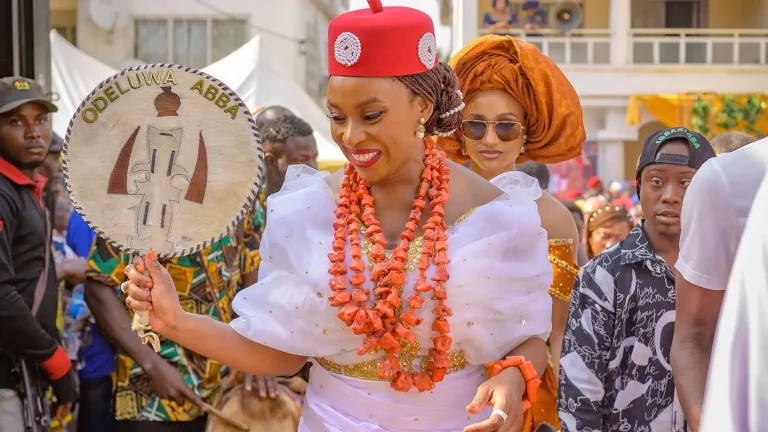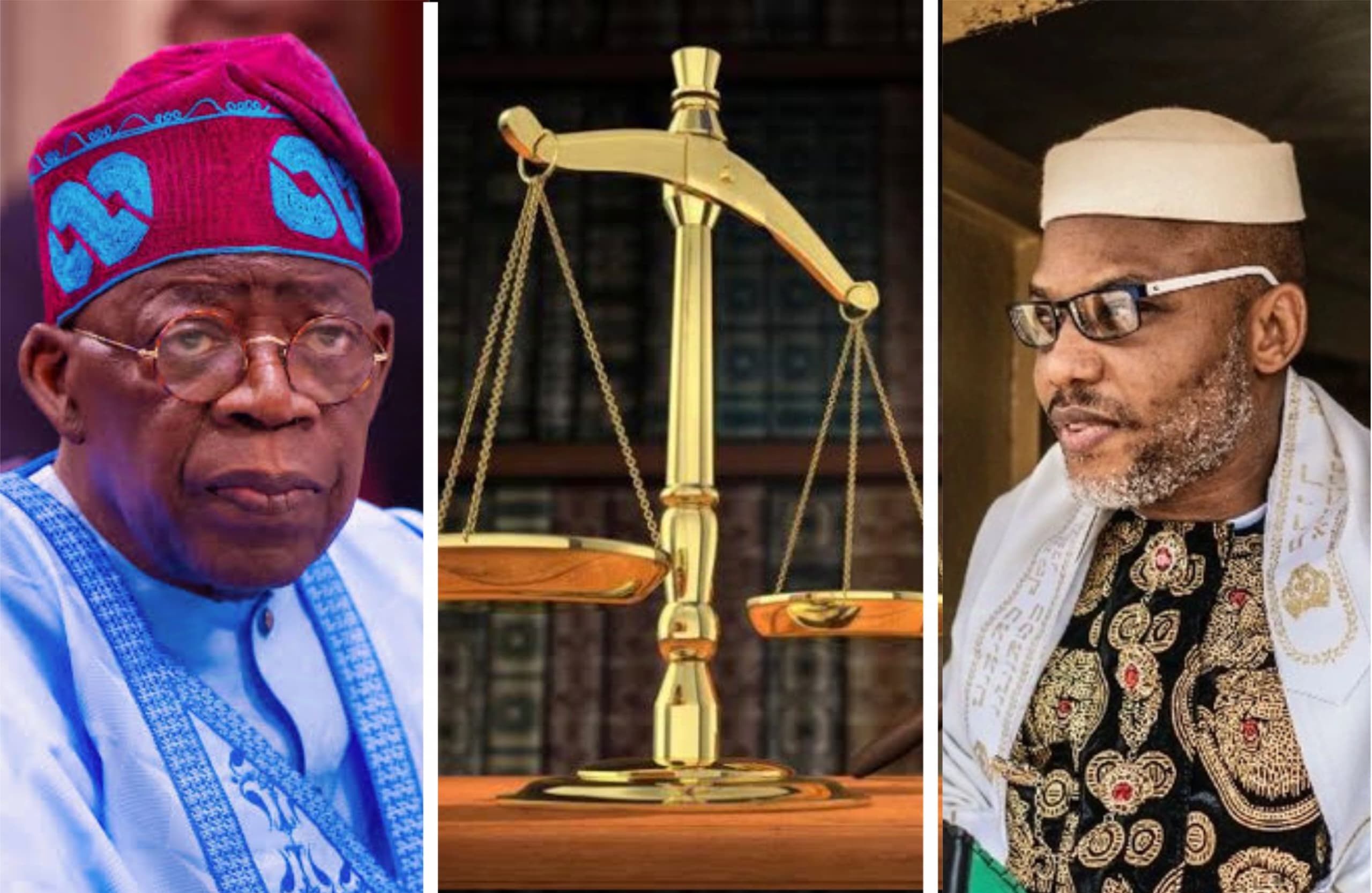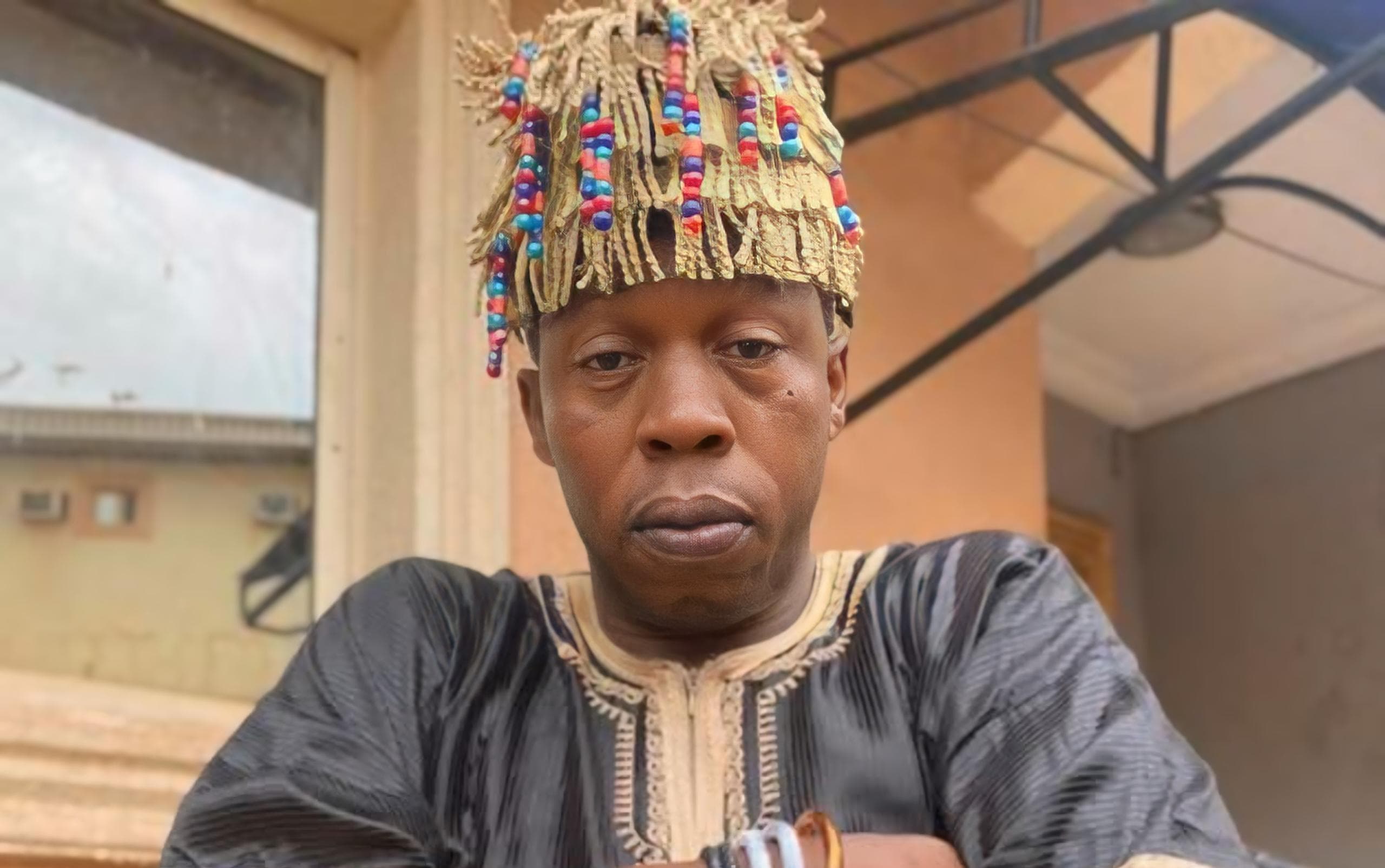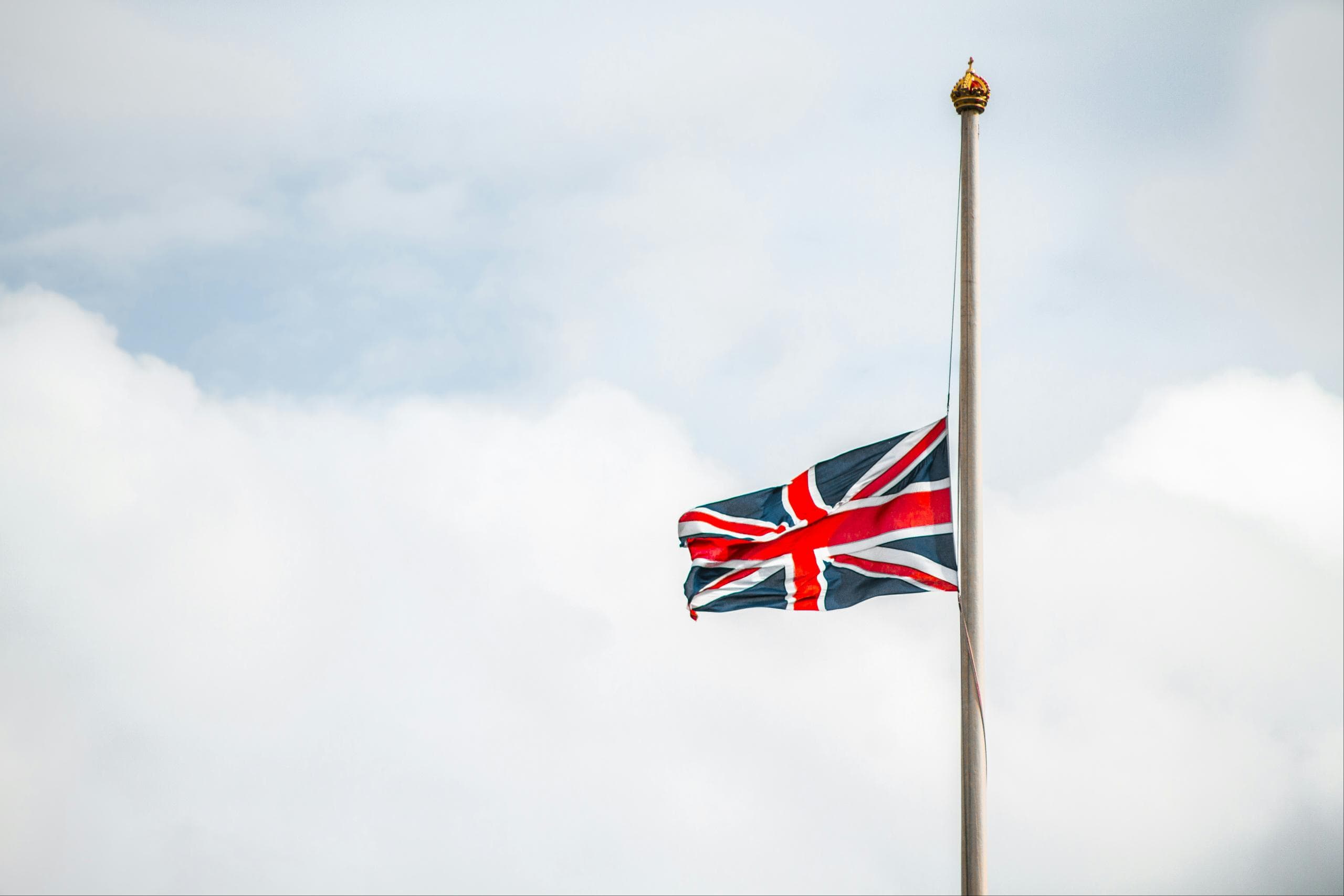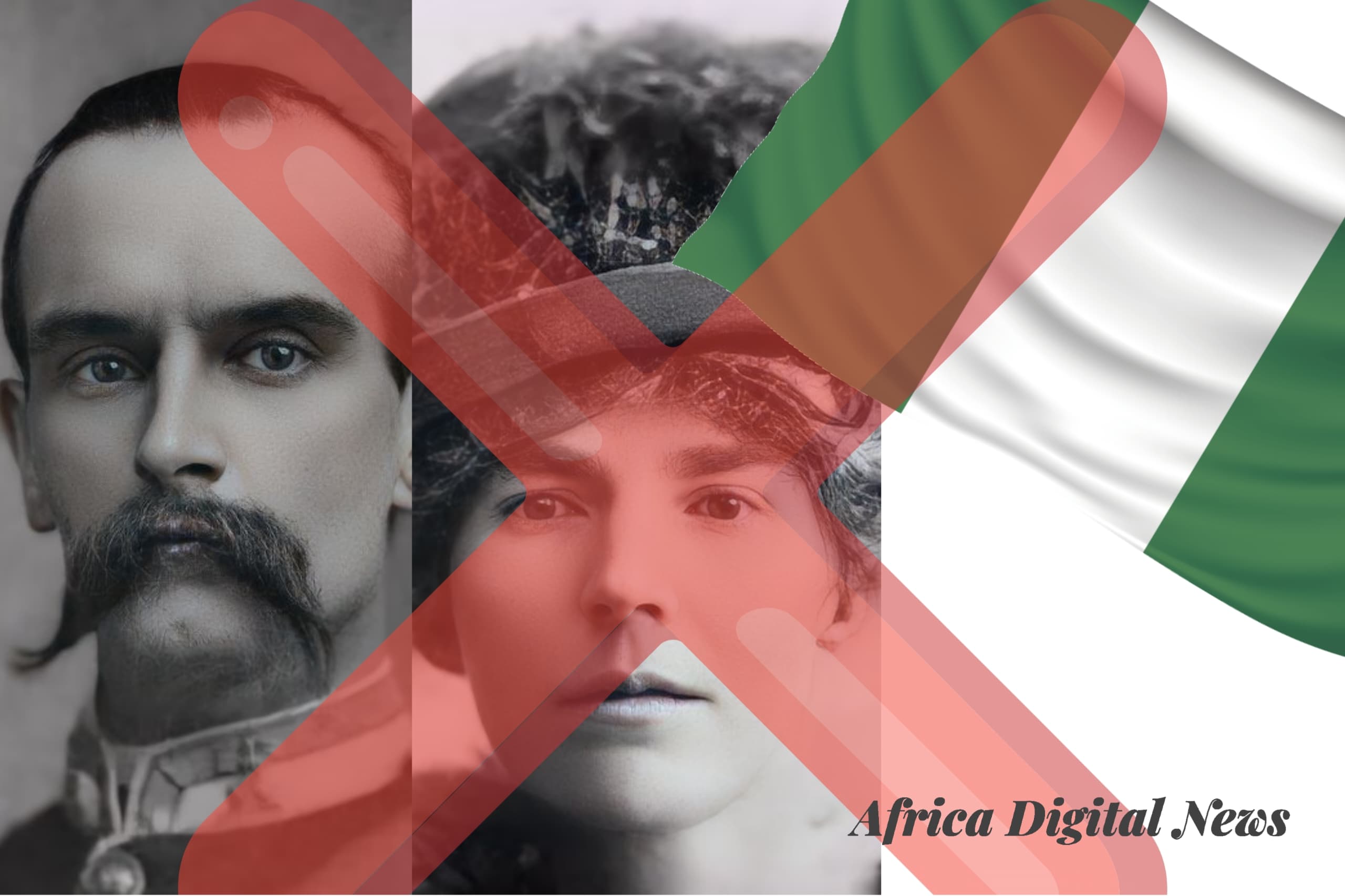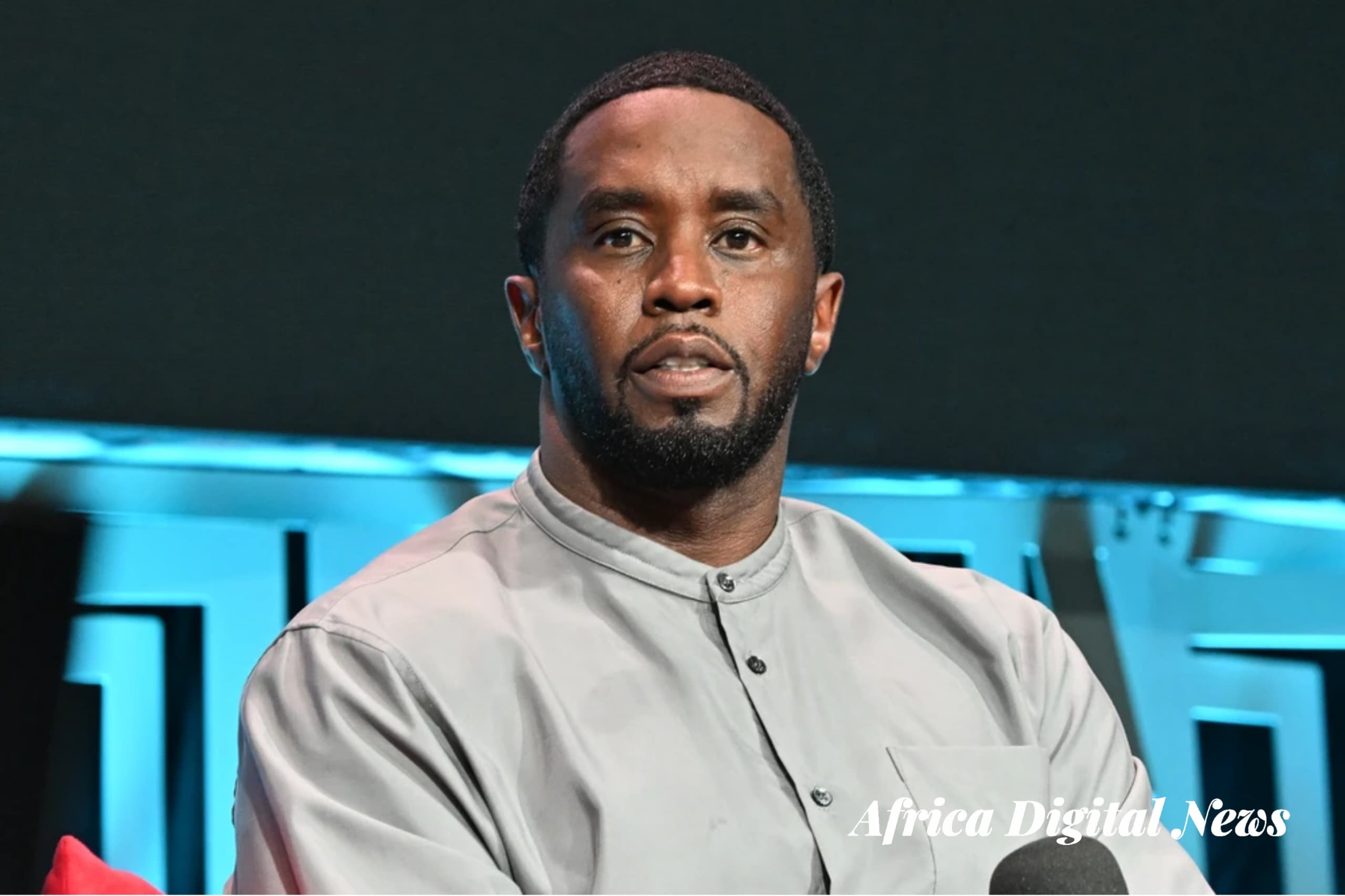One truth anyone with a working conscience will agree with is that over the years, the cultural values of Ndigbo have been badly eroded and are perhaps facing one of its most potent attacks in history. Now and again, there is a strong urge from powerful forces to adulterate, misinterpret and abuse the Igbo culture on the altar of political correctness, shrewdness, and the desire to prove needless points.
Many people who are supposedly expected to be fairly knowledgeable as far as Igbo culture and traditions are concerned have often hidden under the guise of civilisation and development to carry out some acts that can be rightly termed ‘abominations’ just a few decades ago. The bastardisation of chieftaincy titles in Igbo land is perhaps one of the greatest examples of the mess Igbo culture and tradition have been made to go through in recent times.
It has become a common sight nowadays, especially in cities within and outside the Igbo land, to see men without traditional titles wearing ‘red caps’ which by every logical and well-informed sense are meant for chiefs. Admittedly, some of these men wear the ‘red cap’ out of sheer ignorance, however, others wear the cap out of utter mischief, deceptively parading themselves as chiefs. But all this will count to nothing when one considers the fact that even women are about to join in the ‘bastardisation galore’ going by what has been seen in recent times.
Coming from a place of research, the ‘red cap’ in Igbo land is a symbol of authority, culture, and tradition. It is one of the most vivid representations of the chieftaincy institution, its power, and its authority. To be permitted to wear this sacred cap, one must have met certain standards both cultural and moral which are expected to maintain in their respective communities.
Read Also: Nollywood And It’s Poor Interpretation Of African Culture
A fortnight ago, controversial, multi-award-winning Nigerian writer, Chimamanda Adichie was conferred with a traditional title in her hometown in Abba in Anambra State. The traditional ruler of Abba, Igwe L.N. Ezeh in a well-attended event conferred the title of ‘Odeluwa Abba’ on the often celebrated feminist. ‘Odeluwa’ when loosely translated means ‘The one who writes for the world’.
While this contribution is not intended to justify or rubbish the conferment of her ‘Odeluwa’ title, there are, however, a few issues around the modalities that need to be set straight, maybe not for Chimamanda, her admirers or her hometown – Abba, but for posterity.
Shortly after becoming the first woman in her hometown to be conferred a chieftaincy title, Chimamanda had the following words to say;
‘Culture does not make people, people make culture. Cultures thrive when they best serve and reflect the people. Ours must become a culture that celebrates achievement, whether it comes from a man or a woman.’
Granted that culture can be dynamic, however, this dynamism can never be allowed to steal the sacredness of a highly revered institution. The truth is that one thing that stands out about the Igbo culture is supposed to be its blunt refusal to submit to the small and arrogant oligarchy of those whose only interest is to toss it around like a coin to choose the side they best prefer.
Firstly, the traditional ruler of Abba, Igwe L.N. Ezeh should have known that Chimamanda’s regalia and outfit to the ceremony have no place in Igbo tradition. Apart from the Omu of Okpanam in Delta State, no other woman is permitted to wear the red cap for any reason. He should have known that the traditional Nkuchaa hand fan was not made for females in Igbo culture and tradition. He should have known that allowing her to use the symbolic hand fan meant for Ndị Ichie, she could have simply used the horsetail called Nza. He should have known that allowing Chimamanda to adorn a rope on her leg was not in tandem with Igbo culture because it is a sacred title meant for ọzọ titled men in Igbo society. He should have known these things because as expected, he is the custodian of the tradition of the people of Abba. It is sad that in today’s world, the presence of money or material benefits can sweep a lot of things under the carpet.
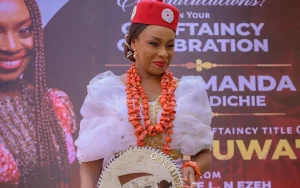
It must be established that despite Adichie’s title, this will not be the first or last time women are taking titles in Igboland. There are many traditional titles in many parts of Igbo land that are the exclusive preserve of women. Titles such as Omu, Iyom, and others come off as notable examples. These titles come with serious roles within traditional circles and are not just passed off to the highest bidder or the most connected. In places such as Onitsha, Anioma, and Oguta, female traditional titles are quite the norm and are the mark of women who have played certain roles in community development. However, it must be established that none of these women breached any of these statuses or established cultural norms during their conferment.
What will become of Igbo land when thousands of women flood the palaces of their monarchs in search of titles that will give them the privilege of adorning red caps, wielding the symbolic hand fan, and receiving symbolic greetings with them with the men folk? What kind of society will such bequeath to the coming generation? What impact will this have on marriage as an institution? These are big questions. While this may not sound so good to Chimamanda’s admirers and women who think men and women should be equal, the truth has to be told, regardless of whose ox is gored.
Over the last two decades, Chimamanda has been a feminist who doesn’t think men are the head and women the neck.
In fact, she believes that both men and women are equal and should be treated equally. On several occasions, she had openly claimed that Igbo culture suppresses women. She even went as far as suggesting that the Igbo culture is patriarchial in many ways and must be jettisoned. The big question here is why she opted to receive a chieftaincy title from the same ‘women suppressing’ Igbo culture. Of course, this only happened because she managed to find an Igbo institution that was willing to do her bidding by suiting her narrative even if it meant spitting on the Igbo cultural heritage.
There is no doubt that Chimamanda is known to be unconventional in many ways. She has been married for several years and didn’t take her husband’s surname. Rightly or wrongly, she doesn’t think marriage is an achievement. She has been a strong voice for women’s rights and equality and that is something no one can take away from her. However, one erroneous impression she has continued to send out wittingly or unwittingly is that the Igbo culture is misogynistic and thoroughly prejudiced against women which should be dismantled. This is all shades of wrong! Who appointed Chimamanda as the protector of women’s rights in Igbo land? What exactly gives her the impetus to believe that Igbo culture should be twisted to adopt her whims and caprices? What will be left of Igbo culture and tradition when she is done ‘reforming’ it? The sincere truth remains that Chimamanda will have passed for a race traitor if the Igbo culture was not as accommodating as it is.
In conclusion, it is important that going forward, Chimamanda should see her newly ‘acquired’ title as one that will require more than just showing up whenever there is a need to bask in Igbo euphoria. She should understand that as a holder of an ‘honorary’ chieftaincy title, she is supposed to be an ambassador of the Igbo course going forward. Henceforth, she must be prepared to add her voice to Igbo causes and the injustice being meted out to them down there in Nigeria. Beyond calling out Catholic Priests, she must be prepared to use her ‘loud’ voice and her writing prowess as an ‘Odeluwa’ to call bad leaders in Igbo land. Finally, the title she now bears is a symbolic one and she must do her best not to soil it in the mud on the altar of feminism. She must find the line no matter how blurry it seems. Congratulations ‘Odeluwa Abba’! To whom much is given, much is expected.

